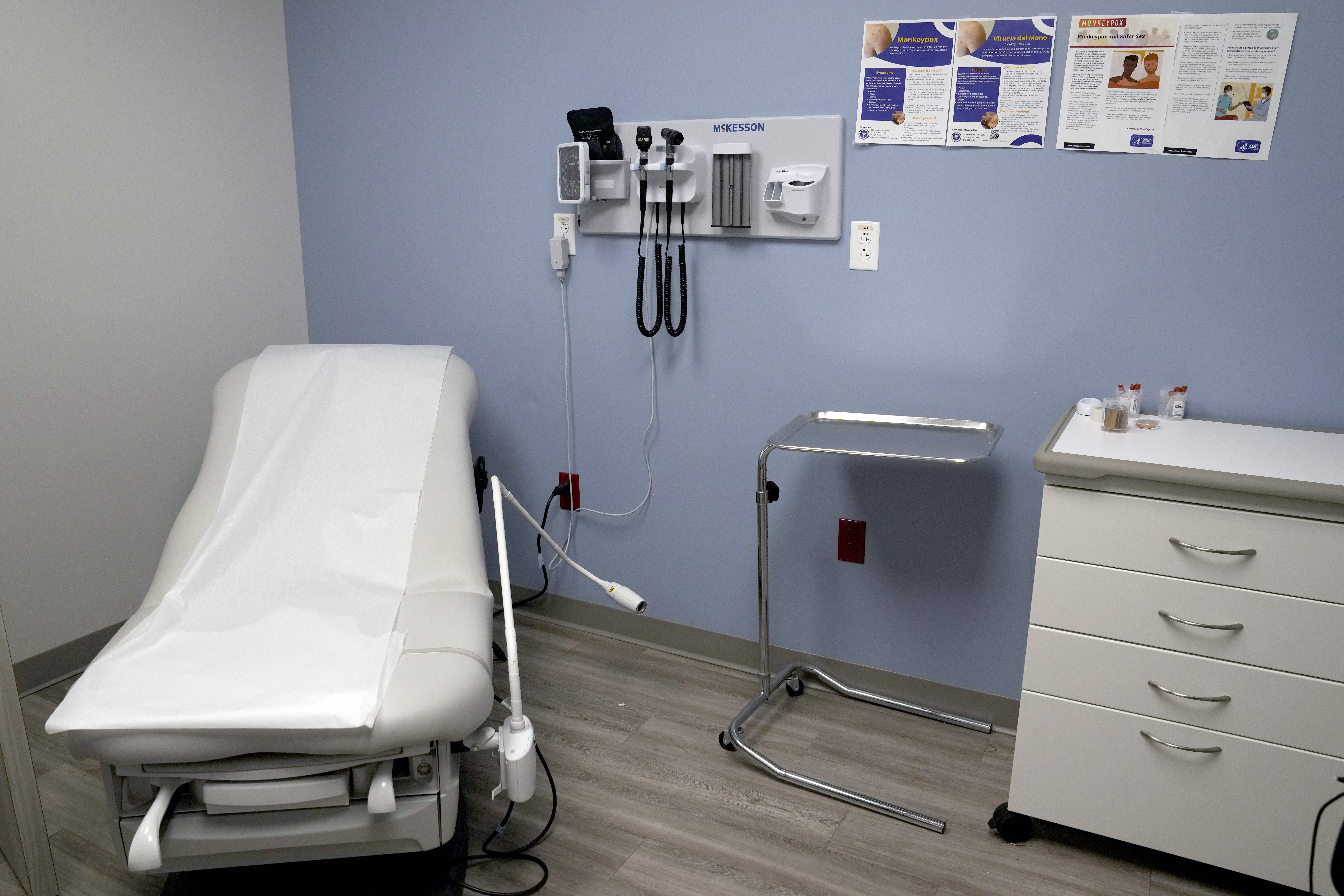Senate Republicans revved up a final push Monday to scuttle President Barack Obama's health care law, an effort that faces low odds of success and just a two-week window to pass. Adding more risk, senators would be in the dark about the bill's impact on Americans, since the Congressional Budget Office says crucial estimates won't be ready in time for a vote.
Democrats backed by doctors, hospitals, and patients' groups mustered an all-out effort to finally smother the GOP drive, warning of millions losing coverage and others facing skimpier policies. Senate Minority Leader Chuck Schumer went further, saying the partisan measure threatened the spirit of cooperation between President Donald Trump and Democratic leaders embodied in a recent budget deal and progress on immigration.
"After two weeks of thinking bipartisanship, that flickering candle, might gain some new light, this is the last thing we need," Schumer, D-N.Y., said on the Senate floor.
Two months after one of the GOP's top priorities crashed on the Senate floor, the revived attempt to uproot Obama's law is being led by GOP Sens. Lindsey Graham of South Carolina and Louisiana's Bill Cassidy.
Their 140-page bill would replace much of that statute with block grants to states and give them wide leeway on spending the money. It would let states ease coverage requirements under that 2010 law, end Obama's mandates that most Americans buy insurance and that companies offer coverage to workers, and cut and reshape Medicaid.
A victory would let Trump and Republican leaders claim redemption on their "repeal and replace" effort. While the House approved its version of the bill in May, the drive collapsed when the GOP-led Senate defeated three proposals for scrapping Obama's 2010 overhaul in July.
"This bill would keep our promise to the American people, and finally give us the health care we all deserve," Cassidy told supporters Monday in an email.
U.S. & World
Senate leaders have no desire to lose yet another health care vote. After July's embarrassing Senate setback, Majority Leader Mitch McConnell, R-Ky., said he'd not revisit it unless he was assured he had the votes to succeed, and many Republicans began refocusing on another big GOP priority, a tax overhaul.
Now, Graham and Cassidy say they believe they have close to 50 votes for the plan, prompting GOP leaders to check if they can finally succeed.
The sponsors say their proposal would let states decide what health care programs work best for their residents. Opponents say patients would suffer.
The GOP proposal "would weaken access to the care Americans need and deserve," said a statement from 16 patients groups including the American Heart Association and the March of Dimes. The American College of Physicians and the Children's Hospital Association also oppose it.
In a tweet, the Congressional Budget Office said it would have preliminary estimates of the bill's fiscal impact next week. But it said it would be unable to provide projections of the measure's effect on coverage, premiums and overall federal deficits "for at least several weeks."
That timing is crucial because Republicans controlling the Senate 52-48 have only Sept. 30 to succeed with just 50 votes. Vice President Mike Pence would cast the tie-breaking vote, and White House officials say Trump would sign it.
Special procedures preventing Democrats from using a filibuster to kill the measure expire after that date, and Republicans would then need 60 votes to win. They can't reach that number because Democrats unanimously oppose the GOP effort.
Conservative Sen. Rand Paul, R-Ky., has already said he'll oppose the measure because it doesn't do enough to erase Obama's law. That means the measure would lose with just two other GOP opponents.
The budget agency's evaluations of past GOP repeal plans concluded they would have caused millions of Americans to lose insurance coverage. Some Republican senators are nervous about the measure's impact on their own states, and the lack of CBO projections won't help allay their concerns.
Voting without the budget office analysis of its impact would be "legislative malpractice at the highest," Schumer said.
Republicans who've not yet lined up behind the bill include Alaska's Lisa Murkowski, Susan Collins of Maine, Shelley Moore Capito of West Virginia, John McCain of Arizona and Ohio's Rob Portman. Collins, Murkowski and McCain provided the decisive votes against the final measure Republicans tried pushing through the Senate in July, which failed 51-49.
"It's better but it's not what the Senate is supposed to be doing," McCain told reporters about the new package. Murkowski said she is trying to determine the bill's impact on Alaska.
Murkowski and Collins have been Planned Parenthood supporters. The bill would temporarily block federal payments to the group.
The revived drive also comes as Sens. Lamar Alexander, R-Tenn., and Patty Murray, D-Wash., work toward a bipartisan deal to continue federal subsidies to insurers easing some costs for lower-earning customers that Trump has threatened to block.
Murray spokeswoman Helen Hare said Murray is "hopeful and optimistic" a deal could be announced soon — a statement that came as Democrats tried peeling away GOP support from the Graham-Cassidy bill.



